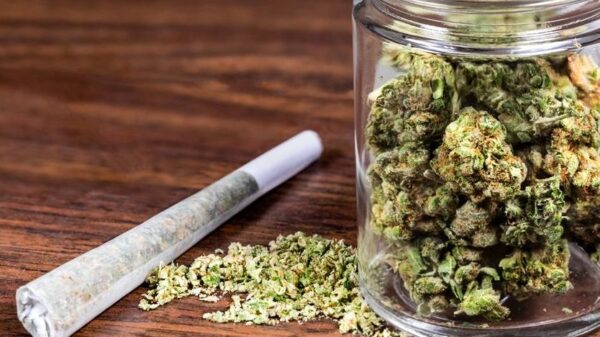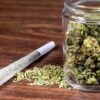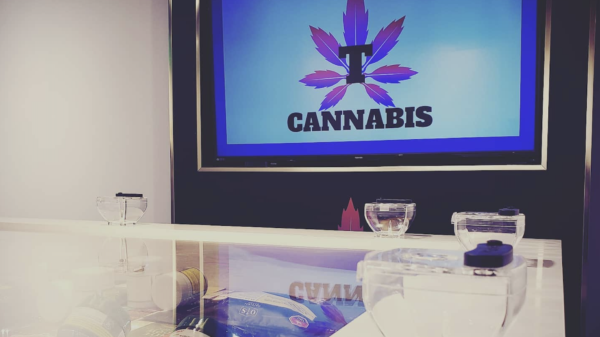.Marijuana use is on the rise in the U.S., with the number of daily users surpassing daily alcohol drinkers for the first time. A recent study found that daily cannabis consumption nationwide has increased nearly 15 times since 1992.
This unprecedented growth could be due to several factors, including the nation’s increasingly relaxed policies towards cannabis and the many states moving towards legalizing recreational use of the drug. A 1992 survey recorded 10 times the number of daily alcohol drinkers compared to cannabis users. However, as of 2022, for the first time, there are more recorded daily users of cannabis than alcohol.
What implications are there, and is daily cannabis use worse for the health than daily alcohol use? What about the potential for addiction? Let’s take a look.
History and legal status
Derived from the cannabis sativa or cannabis indica plant, marijuana has been around for thousands of years. It has traditionally been used for medicinal, recreational, and spiritual purposes, especially by indigenous populations and ancient civilizations.
Despite its long history, marijuana’s potential for abuse came into the spotlight in the mid-20th century, and soon, it was declared a Schedule I drug and banned according to the Controlled Substances Act of 1970. However, recent decades have seen a slow but steady shift towards decriminalization.
First, under Proposition 215, California became the first state to legalize weed for medical use in 1996. Other states like Oregon, Washington, Alaska, and Colorado soon followed. Then, the 2018 Farm Bill legalized all hemp products that contain 0.03% THC or less. This small amount of THC meant that the product was unlikely to have psychoactive effects or cause a “high”.
Today, 24 states have legalized cannabis for recreational use and 38 for medical. However, cannabis remains federally illegal, although there is legislation under way to reclassify it from Schedule I to Schedule III.
Alcohol, on the other hand, has been used for millennia, playing a key role in social and religious activities and rituals. It remains widely accepted in most societies and legal throughout most of the world. Today, alcohol is one of the most commonly used and socially accepted psychoactive substances worldwide.

Photo by RDNE Stock project via Pexels
Physical effects of marijuana vs alcohol
Although both are psychoactive substances, the effects vary significantly. Cannabis users often reported altered perception of time, euphoria, relaxation, impaired motor skills, and increased appetite in a phenomenon affectionately dubbed the “munchies.” Marijuana has also been known to impair short-term memory, coordination, and judgment. This makes activities such as operating machinery or driving a vehicle risky.
Long term use of marijuana has also been linked to respiratory issues, cognitive decline, and increased risk of psychosis. While cannabis is less addictive than other substances like nicotine and opioids, a dependency can still develop.
Alcohol’s effects include lowered inhibitions, loss of coordination and balance, slurred speech, delayed reaction times, and impaired judgment. Chronic alcohol use can lead to more severe issues like liver disease, cardiovascular problems, and increased risk of various cancers. Alcohol is also highly addictive and prolonged abuse can lead to Alcohol Use Disorder, or AUD.
Operating machinery or driving a vehicle under the influence of alcohol has been shown to have a direct impact on the number of accidents and injuries due to impaired motor skills, making this a strict no-no.
Read more: Historic cannabis rescheduling imminent in the U.S., multiple sources say
Read more: Frequent cannabis consumption doesn’t demotivate people, U of T study finds
Mental health effects of marijuana vs alcohol
Although mostly used for its relaxing effects, marijuana can also induce anxiety, paranoia, or psychotic episodes, particular in high doses or in users that are predisposed to mental health conditions. Long term, chronic use has been linked to depression, anxiety, and schizophrenia. However, marijuana is also used as a medical treatment for PTSD, depression, and anxiety in controlled doses and monitored by a healthcare professional.
Alcohol, however, can exacerbate anxiety and depression. Often used as a coping mechanism, this can lead to a cycle of dependence and chronic long term use can lead to addiction. There are approximately 18 million Americans and an estimated 1% of the population globally with Alcohol Use Disorder, taking a toll on families, communities, and the healthcare system.
Potential for addiction
Marijuana is considered less addictive than alcohol. However, long-term, heavy use can lead to cannabis use disorder, especially in those predisposed to substance abuse. Withdrawal might include irritability, sleep disorders, and a lack of appetite. The number of marijuana users is rapidly growing, and estimates show about 10% of users have some form of cannabis use disorder.
Alcohol is highly addictive and it is estimated to be responsible for almost 100,000 fatalities every year due to alcohol-related health problems. Withdrawal from heavy and prolonged alcohol use can be severe and potentially life-threatening. Medical supervision is often required for detoxification from heavy alcohol abuse.














